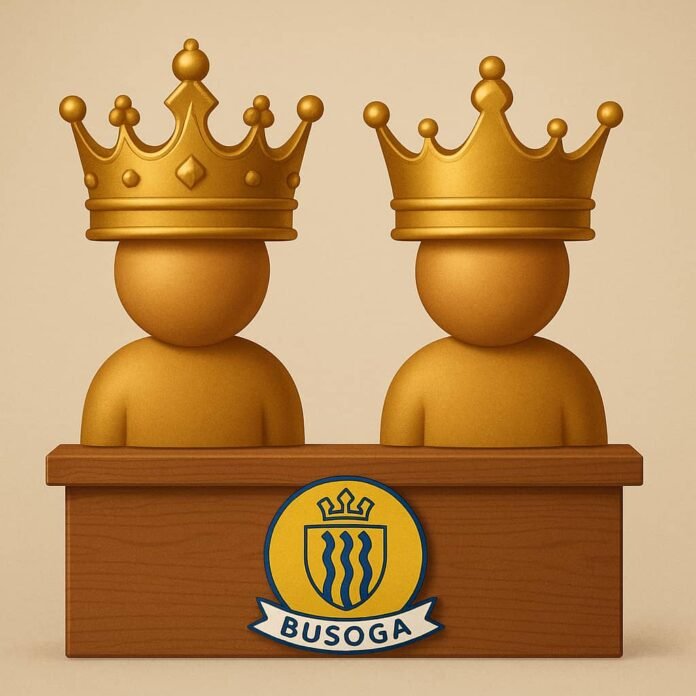History, like the mighty River Nile that cuts through Busoga, always surprises us with fresh tributaries of destiny. The joyous news of the Kyabazinga and the Inhebantu unveiling twin princes is more than a personal blessing to the royal household; it is a philosophical punctuation in the long narrative of Busoga’s kingship.
1. The Mystery of Twin Heirs
Twins in African cosmology are never “ordinary.” Among the Baganda, Banyoro, Basoga, and across Africa, twins are a sign of double blessing but also double responsibility. They do not only symbolize continuity, but also the duality of life itself—order and chaos, light and shadow, hope and uncertainty.
Now, with Prince William Ethan Nadiope and Prince Arnold Eli Nadiope, Busoga stands not only before the joy of succession but also before the age-old riddle: when two sons are born at once, who carries the heavier weight of tomorrow?
2. Heirship in a Kingdom of Elections
Unlike the monarchies of Europe where primogeniture dictates, Busoga’s throne is not passed like inheritance of cattle or land. It is not the automatic bloodline but an elective process by the Lukiiko and the eleven hereditary chiefs.
Thus, these princes, though blood of the Kyabazinga, are not in the waiting room of guaranteed enthronement. They are royal sons, yes, but their crowns—if ever—will depend not on birth alone but on consensus, politics, and the delicate equilibrium of clan power.
This makes them heirs in spirit but not necessarily heirs in law. They symbolize continuity but do not own it.
3. The Philosophy of the “Waiting Heir”
So, who then becomes the waiting heir?
The answer lies not in the cradle but in the council chambers of the chiefs. In Busoga, the throne is not merely about blood but about balance, legitimacy, and destiny negotiated among equals.
This is profoundly philosophical. It reminds us that power, even when surrounded by the aura of divine blessing, is still subject to the collective will. It reminds us that the Kyabazinga is less a hereditary king and more a custodian chosen to embody unity.
The twin princes thus embody the paradox of kingship: to be royal but not necessarily ruling, to be crowned by blood but not by law, to be heirs without yet being heirs.
4. A Lesson for Uganda and Africa
In this, Busoga teaches Africa a deeper lesson about leadership. Power need not be sealed by blood alone. Even kings can be chosen. Authority is at its best when legitimacy is broader than lineage.
The question of succession in Uganda itself—where one man’s long reign casts shadows across generations—echoes Busoga’s dilemma in a different scale. Who is the waiting heir of Uganda? Is it the biological son, the political protégé, or the voice of the people themselves?
The Kyabazinga’s twins remind us that legitimacy cannot be swaddled in a cradle; it must be affirmed by the community.
5. The Double Crown of Destiny
In the end, the twin princes are not yet heirs but living metaphors of Busoga’s future. One day, they may walk into the elective circle not as mere sons of Gabula IV but as men who must convince Busoga of their worth.
Until then, they embody hope, continuity, and divine laughter. For the gods of Busoga have given the kingdom not one heartbeat of tomorrow but two. And in that double blessing lies both promise and provocation:
Promise, that the royal line shall not wither.
Provocation, that the chiefs and the people must one day answer: which twin shall be more than a prince?
Lubogo’s Last Word:
The waiting heir in Busoga is not born; he is chosen. The twins may sparkle as jewels in the crown, but the crown itself is heavy with the weight of tradition and elective legitimacy. And herein lies the irony of kingship: blood gives you the name, but the people give you the throne.








